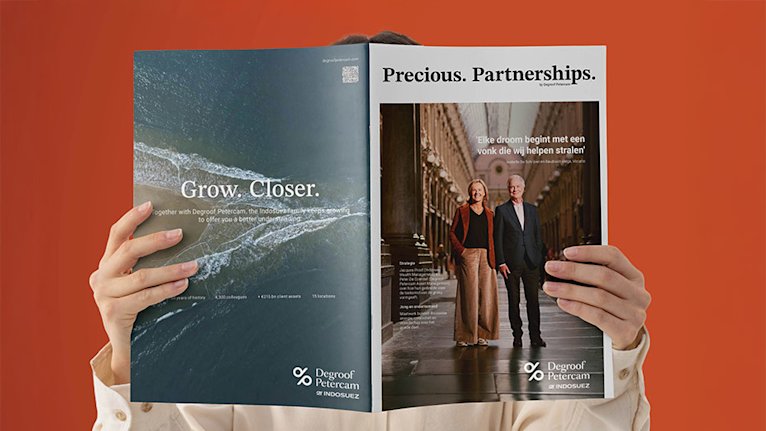11.03.20204 min
The non-romantic effect of marriage, legal or de facto cohabitation: what is the difference in terms of inheritance?
Sophie and Matthew are in love: they live at the same address, they are considering buying a house, and are thinking about having kids. Should they get married? Or can they just continue to live together? In the past, such a couple would have decided to get married. But today that’s no longer a given...
In this article we focus on a non-romantic effect of the decision to get married, or not: How does that decision affect your inheritance? In terms of inheritance, there are quite some differences between legal spouses, legal cohabitants and de facto cohabitants.
What are your partner's legal inheritance rights if you pass away and there are children?
The law determines who inherits your assets if you have not taken any particular steps to deviate from the law, for example by drawing up a will.
- You are married, and you have children. In that event, your spouse inherits the usufruct of the entire inheritance. The children inherit bare ownership of the inheritance in equal shares.
- You are legally cohabitating. Inheritance law is less extensive in this case. Your partner only receives the usufruct of your share of the family home and the usufruct of the household goods. The children each inherit an equal share of the bare ownership of your share of the family home (and the household goods) and of the full ownership of the other goods in the estate.
- You are de facto cohabitating. Well, then there is no legal arrangement.
- If you want to leave some of your assets to your de facto cohabiting partner or you are not satisfied with the legal arrangements in general, you must draw up a will, make a donation to your partner or arrange things by marriage contract during your lifetime.
What is the maximum part of your inheritance that you can allocate to your partner when there are children?
That available part is exactly half of your assets. This means that your children together enjoy a reserve of precisely one half (1/2).
- You are married: the maximum you can leave or donate to your spouse is one half in full ownership and the surplus (the other half) in usufruct.
- You are legally cohabitating: you can grant your legal cohabitant up to half of your inheritance in full ownership by will or by donation.
- You are de facto cohabitating: your partner has no legal right of inheritance. As already said, you have to draw up a will or make a donation during your lifetime if you wish to pass on part of your assets to your partner. But there is a limit in the event you have children: The maximum that you can pass on or donate to your de facto cohabiting partner is the whole of the available part which, if there are children, is fixed at half of your assets in full ownership.
What about gift tax and inheritance tax?
In Belgium, the regions are responsible for levying gift and inheritance taxes.
The place of residence of the donor on the day of registration of the donation or of the deceased on the day of his passing determines which of the three regions is responsible for levying the gift or inheritance tax. The location of the donated property, the tax residence of the beneficiary of the gift or inheritance, or the nationality of one of the parties are irrelevant.
It is important to stress the fact that all this only applies in a national context. As soon as there is an international aspect, factors like the location of the property and the place of residence of the donee come into play.
In the three regions, both the spouse and the legal cohabitant benefit from the most advantageous rates of gift and inheritance tax.
Only in the Flemish Region is the de facto cohabiting partner after a certain period of time on the same legal level as a spouse or a legal cohabiting partner for the rates of gift and inheritance tax. In the Brussels-Capital Region and in the Walloon Region, the rates applicable between "all other persons" also apply for the de facto cohabiting partner.
The place of residence of the donor on the day of registration of the donation or of the deceased on the day of his passing determines which of the three regions is responsible for levying the gift or inheritance tax. The location of the donated property, the tax residence of the beneficiary of the gift or inheritance, or the nationality of one of the parties are irrelevant.
It is important to stress the fact that all this only applies in a national context. As soon as there is an international aspect, factors like the location of the property and the place of residence of the donee come into play.
In the three regions, both the spouse and the legal cohabitant benefit from the most advantageous rates of gift and inheritance tax.
Only in the Flemish Region is the de facto cohabiting partner after a certain period of time on the same legal level as a spouse or a legal cohabiting partner for the rates of gift and inheritance tax. In the Brussels-Capital Region and in the Walloon Region, the rates applicable between "all other persons" also apply for the de facto cohabiting partner.






